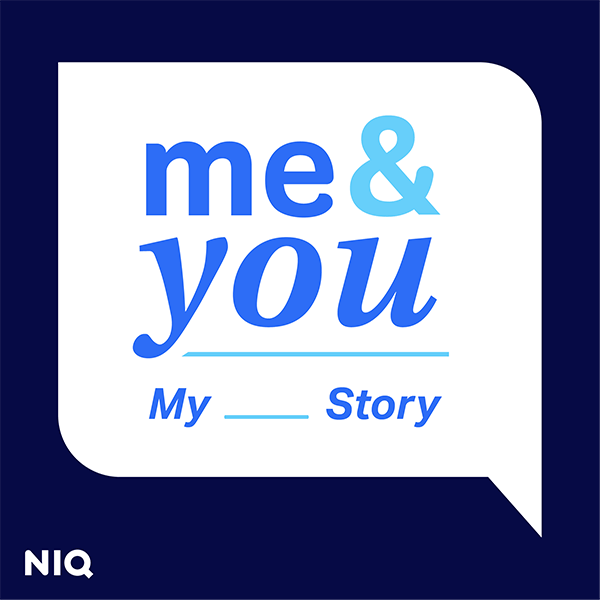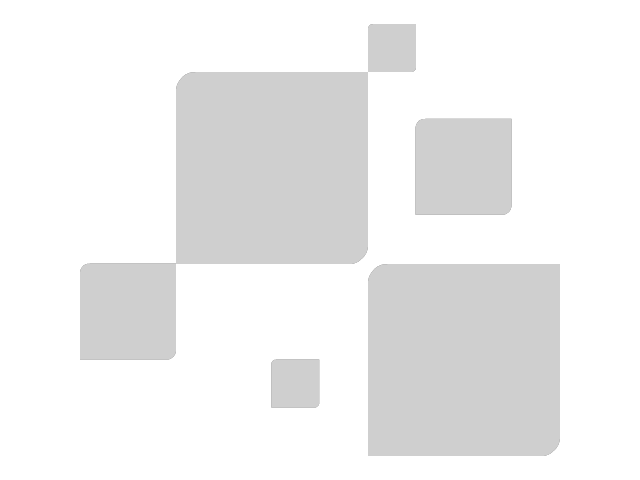Episode 9: Daniel talks about the importance of personal branding
Join hosts Funda Kalemci and James Anderson as they sit down with guest Daniel Perez to talk about the importance of personal branding.
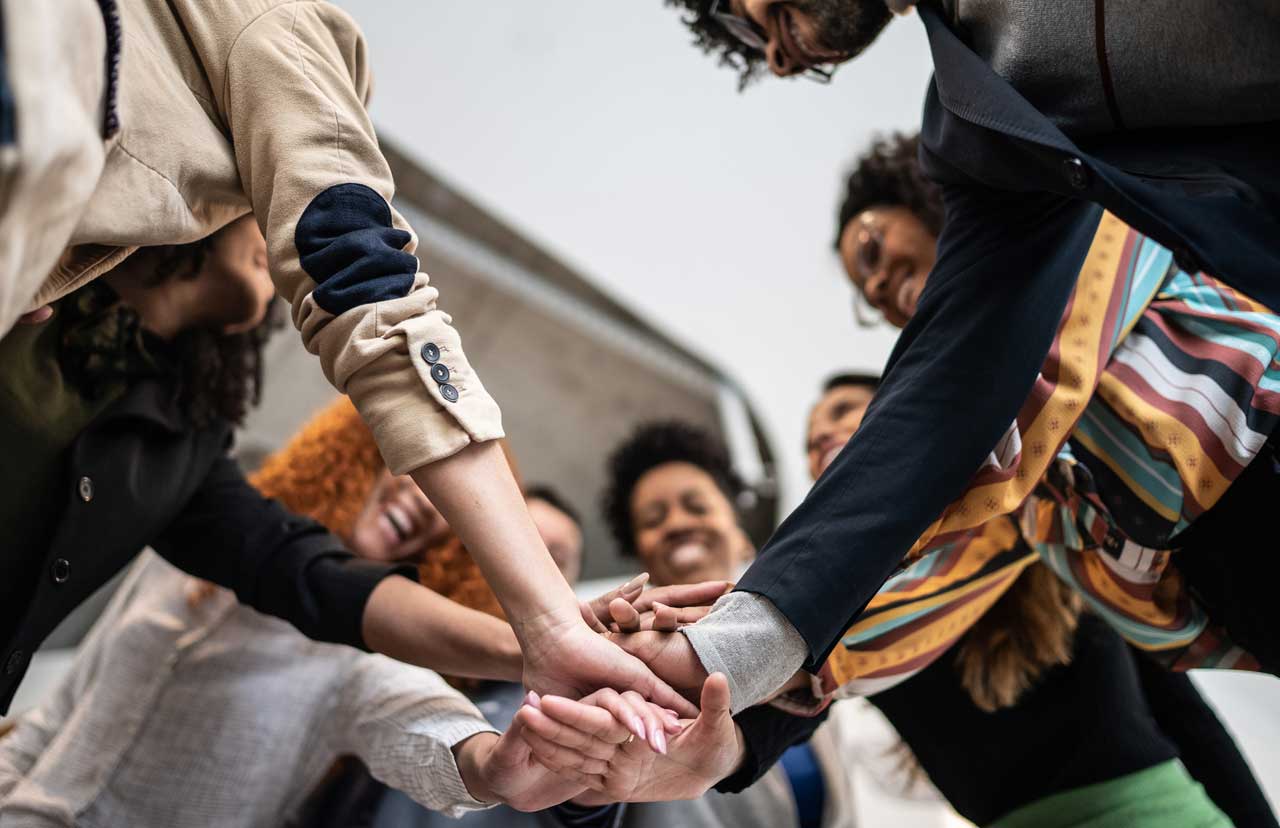
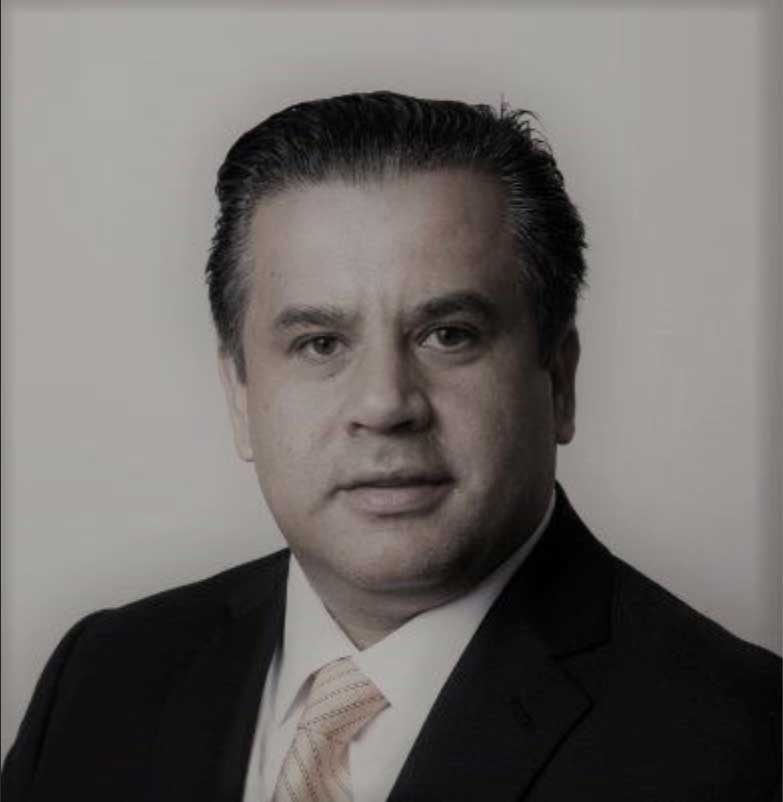
Daniel Perez – Cincinnati, Ohio, USA
VP, Consumer Intelligence, North America Sales Specialist
Daniel joined NIQ in 2010 with CPG/Retail experience acquired at P&G, Heineken, and Walmart. He is the second longest standing HOLA member (after Myriam Vidalon😉). He was appointed HOLA lead 2 years ago. He was 2018 Nielsen’s PRISM of Diversity & Inclusion winner, and a 2019 Diverse Leadership Network graduate. In 2020, as an intrapreneur, he created & launched NIQ’s first omni app: Omnichannel Shopping Fundamentals. In 2022, Daniel led the Commercial launch of the new Omni solutions in the USA. Daniel lives in Cincinnati, Ohio, US with his family and enjoys travelling (India is my favorite). Daniel dreams of visiting 100 countries, and still has 27 to go!
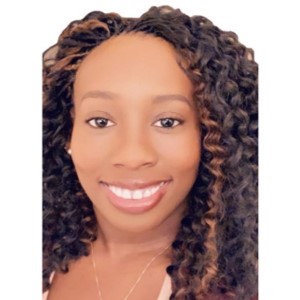
Dominique Brown – Chicago, Illinois, USA
Manager, DEI
Dominique is based in Chicago, IL, where she lives in her new house with her puppy, Ellie, a cockapoo.
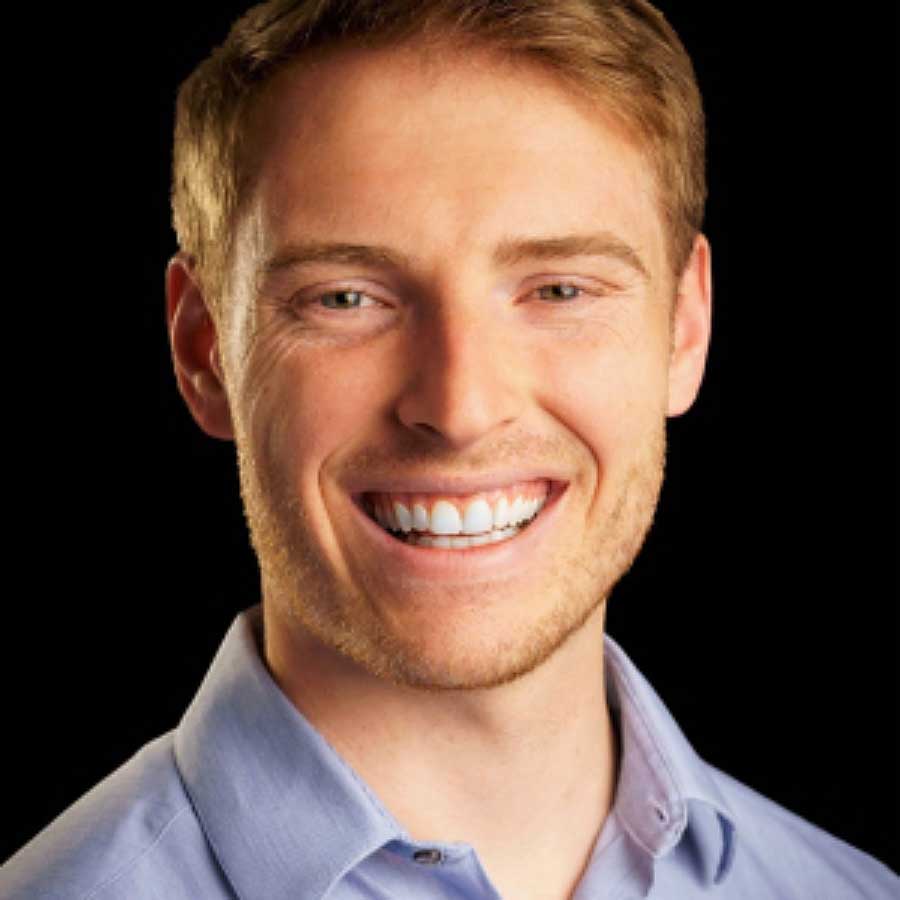
Jake Conlin – New Orleans, Louisiana, USA
Senior Research Analyst – Customer Success Core BASES
Jake Conlin has been with NIQ for 2 years working within the innovation space. While he’s been in audio production for over a decade, he began his podcasting journey during his time at the Marriott School of Business where he led a podcast team and presented at multiple international communications conferences on sound engineering.
What’s the Point of a Personal Brand?
Transcript
The views and opinions expressed in this podcast belonged to the individuals who shared them and do not necessarily represent Nielsen IQ. Note that this podcast discusses sensitive topics that may be triggering for some. For more information specific to this episode, see the episode description.
Laura Batien: Hi everyone, and welcome to My ___ Story. My name is Laura Batien and if this is your first time tuning in then let me tell you what this podcast is all about. In a nutshell, it’s about stories. Your stories. We think stories are important because when we tell them we open the door and allow others to see the experiences that shaped us, that challenged us, and helped us grow. By doing this, we can create a culture where open dialogue is encouraged, and we can have a space to discuss important topics in a transparent and courageous manner. So, minimize that e-mail tab, mute your chat, and take a little break to listen to a NielsenIQ story.
Funda Kalemci: Hello everyone. Thank you so much for tuning in to our My ___ Story podcast. This is Funda Kalemci. I am the global leader for Diversity, Equity, Inclusion, and Corporate Citizenship at NIQ. And today I am joined by my co-host, James. James…hello!
James Anderson: Hello there Funda. My name is James Anderson, and I am a senior analyst for the manufacturing side here in the Toronto office in Canada. We’ve got a bit of…we had a nice day here today with some sunshine and clouds. How are things where you are today, Funda?
Funda Kalemci: Oh, it was rainy. Sorry, I really don’t want to talk about that, so…
James Anderson: I can’t believe I started with a weather conversation. That was a very Canadian way to start the conversation. “Let’s talk about the weather, eh?”
Funda Kalemci: Instead of talking about the weather, let’s just dive into our guest today. I’m really looking forward to hearing Daniel’s story. Well, I just gave it away today. We’re hosting Daniel Perez. Daniel joined NielsenIQ in 2010 and before that he gained experience in the CPG retail industry. He is very passionate about diversity and inclusion and I can attest to that because I’ve been working with Daniel for quite some time within our ERGs. Not only that, he also won one of our Prism Awards back in the day. We called it the Diversity and Inclusion award for Nielsen at the time. He is an entrepreneur. He built and took to market NIQ’s first Omni app. It is the Omnichannel Shopping Fundamentals. Last year, he also led the commercial launch of Omni in the USA. On a more personal level, he lives in Cincinnati, USA with his family and well, his guilty pleasure, as in his words, is traveling. He dreams about visiting 100 countries and wants recommendations for the last 27.
Daniel Perez: Hello everyone. My name is Daniel Perez and today I want to share my story. Back in 2010, I moved from Mexico to the US and I started working for Corporate America. Now in the US, previously, I have worked for American companies out of Latin America or Mexico. When I moved to the US, I was working from one of the least diverse states and cities in the entire US. And here when I arrived, I had no personal brand. People didn’t know what college I went to, what sports that I played, what were my achievements? So basically, the environment was determining my brand and there was a point where everything changed for me, and it was a tipping point. So, I’m going to share a personal experience. One night I was working really late. I was on my way back to my desk and somebody at the office who was working late asked me to clean their desk. As you know, most of the cleaning crews are Latino, so they thought, well, I was part of that crew. So yes, I’m Latino. Fiesta dancing and manual labor are important and I love to party and dance as most Latinos. But I’m a leader with international experience driving innovation, strategy and commercial teams. Due to genetics, I look Latino and I need to let people know what are my qualifications. And as a marketer, I quickly realized the importance of creating and nurturing a personal brand. Because unless you inherit a trust fund, your personal brand is your most important asset. And that is why, over the past five years, I have promoted personal brand building among all the members at NielsenIQ, and our company has been really supportive in providing internal and external speakers. And the other members at NielsenIQ that have taken action in creating, building and nurturing their personal brand have reported positive results in their professional journey. And the reason I’m doing this is because I believe it’s the right thing to do, and as a parent, the legacy I want to give to my girls and to the world is a place that has better equity and is more inclusive. And the way I have decided to contribute is by giving diverse talent visibility to the importance of personal branding.
Funda Kalemci: Daniel, thank you so much for sharing your story. We really appreciate you opening up about your experience and it is really, you know, the truth…the lived experience of what we call unconscious bias, right. It’s a very, very good example. Not only in life, but also in the workplace…how it plays out in the workplace, that unconscious bias. I’m curious, what were your initial thoughts, or…you know, your reaction, your first reaction in the moment as you were going through that…that experience…that co-worker turning to you to ask, you know, to clean their desk. What was your reaction? How did you feel about it? And like, what did you do?
Daniel Perez: So I started to think about why that person said that exactly. And when I was thinking about that, we all have unconscious bias. We all have different ways that we process information, and we cannot escape that. I do that in different situations. So, I understood where that person was coming from and to me, that was like an “ah ha” moment. Because then I realized that there is a big opportunity to drive change and make a difference in the workplace. And what I was thinking for the future…in terms of my family, one of my main goals is to try to make this world, this place that we live in, this blue marble, a better place for everybody, so I guess when you get lemons, you need to make lemonade, and this was one of those occasions.
Funda Kalemci: Thank you so much for that. Like, I haven’t heard the blue marble for a while. It really struck my heart chords here. But just to follow up on your response there, did you really make that connection right away that you know why he was talking to you, asking you to clean their desk? Did you, you know, connect the two?
Daniel Perez: So, it was not instant, it took time to actually understand that. I guess when I understood what was happening was when I used to talk in Spanish to the cleaning crew. Because it was easier when I talk to them. I was like, oh, OK, that makes sense because we speak the same language and from the outer, we look the same. So, when I was talking in Spanish, it’s like, OK, they look like me, we speak the same, we were late, so obviously. There’s a saying in the US if looks like a duck, it’s a duck, something like that.
James Anderson: Walks like a duck. Talks like a duck.
Daniel Perez: Exactly so. So, I think that that person didn’t do that on purpose. It’s just the unconscious bias and just being in an automatic-like reflex of the actual environment.
Funda Kalemci: See, that unconscious bias is so strong in all of us. When we are not aware of it, we don’t know how to manage it.
James Anderson: Do you think that, you know, these kinds of moments, you know, the ones that you went through, Daniel…is it the role then of the person to then create a teachable…quote unquote, teachable moment?
Daniel Perez: Certainly, we can create a teachable moment every time something like this happens. We could be every day, every half an hour, trying to teach something to somebody. So, what I thought was going to be more impactful and that’s one of the reasons I am really passionate to work with the ERGs. How can I empower the members in my HOLA group to…which is a Hispanic group of employees…to build their own brand? And that’s why I got passionate about this topic. Because when you do yourself, either you are new to the company, you are changing your role, you’re trying to get promoted the way you are perceived…that is the reality. And you need to make sure that you convey the best of you. I guess we can teach others, but I prefer to teach myself and everybody trying to learn to act on driving the way they are perceived.
James Anderson: And using the personal branding to sort of to do that.
Daniel Perez: And that’s another way to teach others by showing with an example.
James Anderson: So then what kind of tips can you give? To listeners who are wanting to work on their personal brand to sort of, you know, maybe avoid some of these pitfalls or to build their career within a company then?
Daniel Perez: So, I guess the first one is just acknowledge that unconscious bias is real and in most of the cases is not something that is intentional. It’s just the way it is, so don’t start fighting with people. The other is you need to do an introspection to understand who you are, and who you want to be. How do you want to be perceived? And very important is to be humble and ask people for their opinions in terms of how you are perceived. And accepting feedback is really hard. Once you do that, you need to commit on understanding what are those. You need to choose to take your brand and how people are perceiving you to where you want to be. And I guess the most important piece is this takes work, I guess all good things in life cannot be something that you just flip a switch and it happens. You need to work on it and you need to be intentional about it.
Funda Kalemci: Oh my God. Daniel, I love that response and it makes me think about how different it is for someone in a marginalized group to build that personal brand with additional care and with a thought process that is a very, very important point in personal branding. But I want to take it from there to your work at NIQ with that experience and with that personal brand that you have started building on…building up. How has it…how has it impacted your work at NIQ?
Daniel Perez: So right now, I am part of the commercial team and as you know, I am moving into a more sales driven culture. And that means that I am not just my brand, I also represent NIQ when I talk to a client. So that’s why maybe listeners cannot see me, but I like to wear a jacket or be very presentable when talking to the clients, because that’s important. Because I am not just conveying the brand of Daniel Perez, I’m also conveying the brand of NIQ. So in my day-to-day job, it’s really important. It is important the way I speak, the confidence and trust I can build with my clients and personal branding. It isn’t just…how do I look? It’s also how do I interact? Do I get early to a meeting? How well prepared I am when talking to a client about their business? Am I really paying attention? Am I doing feedback in the process when they share their business goals, their business needs? Do I close the loop? I have an accent, obviously, and you can take that in two ways. It can help you, or you can actually use it as an ice breaker. Sometimes you say something, and people are like, what did you say? Use it to just say sorry about the accent and you just need to embrace who you are.
Funda Kalemci: I love that embracing who you are embracing you know what you bring to the table. And I am a person who believes in the accent being a superpower. An accent is your superpower. So, you have been a part of our employee resource groups forever…as long as you’ve been in the company…but not only that, you have been a part of our strategy planning. I’m going back to your story, right? Like, how did that experience lead you toward the broader DEI conversation in the company, but also how did it bring you to the employee resource groups? You have been an HOLA leader. HOLA is our Hispanic Leaders in Action. So how did that experience play a part in that process?
Daniel Perez: So, I’ve had the honor to take every role in the ERG process in the HOLA or the affinity groups. So, I was a Member first, just listening to people. Then I got involved. I started collaborating. I became a city lead for the Cincinnati office, then for the region, and then got expanded responsibilities. On that aspect and to that journey, what I was always seeing is it was really important to make sure that people…members and people that I work with get the right opinion about you and they do not make some assumptions based on how you look, how do you speak. And you need to make sure that that was important. And throughout the years we have had different Chief Diversity Officers and I was privileged to have the chance to talk to them. And I always admired the way they…their presence and how they were perceived. So, I’ve been trying to emulate them because I guess it is a good example and I am now passing the torch to younger generations because it is important. And when we think about other generations, maybe in my generation we are very careful about the way we talk. We say, like, “Sir” or something. And maybe other generations they are more direct. But in the corporate setting there are written rules, and your brand and your persona needs to work to make sure to deliver on those. Because at the moment, we work in this, and that’s one of the things I love about this NIQ – they’ve been supporting this effort.
James Anderson: I just I wanted to pick up on that last statement you made. Anyone who’s been part… like in some kind of noticeable other group, you know? Gay men, like myself, or something like that. I feel like there is the ability to read the room and sort of…to be more aware of the number of the other voices in the room because you know, for whatever reason, your voice may have been silent. Your voice may have been shut down, or you may have not felt confident in the environment to speak because of the difference or the otherness. So, I’m just wondering how any of this has sort of played into how you approach some of these boardroom discussions or the client discussions.
Daniel Perez: Yes, that’s very interesting. And my answer with a term – that is, intersectionality, and is helping others. I remember vividly, like, five years ago, I was in a client meeting. This was in person at the time…was pre-COVID, and in the room. We were talking to a client and that client, the profile of that company, was very hierarchical-like. But interestingly, the only persons that were talking were males. They didn’t…they were basically not letting…there were clients who were females, and they were not brought into the conversation. So, I guess as part of being inclusive, what I did is, I started asking and talking to that person so they become part of the conversation. So, this is an effort, not just an internal…we also have the opportunity to expand and help others in this process.
James Anderson: The more people involved in the conversation usually helps move it forward in a positive way.
Funda Kalemci: So, Daniel, we have this question just about…for all of our guests, and I think I want to close this up with this question. Who has been your biggest supporter in life at work, and what they have done to make you feel supported in that process, and turned you into the supportive person that you have become?
Daniel Perez: I’m going to answer first with my …the person I admire the most at NielsenIQ and that’s Myriam. Myriam Vidalon. I guess to me she sets an example on something that in Spanish that we say, “Si, se puede,” which means yes, it is possible. And I’m really proud. The first time she was the CDO, I went online and looked for how many Hispanic Latinas are CDOs? And the number is very, very small. So, she became to be one of the very few in the total of US corporate America to get to that. So to me, it is an aspiration to follow in her tracks…think that can be done. Also, throughout the years, I had the chance to talk to her. And she’s a good friend. But also, she challenges me.
James Anderson: That’s amazing. Thank you Daniel, so much, for sharing that with us and sharing your story with us today here on the My ___ Story, the podcast. Thank you as well Funda for being my co-host on this episode. Please make sure to follow along with us as we create more and more episodes where more and more of our associates will be sharing their stories, their My ___ Stories, with all of you.
Laura Batien: Hey all, it’s Laura again. We hope you enjoyed this episode of My ___ Story. Tune in next time to hear more stories from the NielsenIQ community.
Daniel Perez: As a parent, the legacy I want to give to my girls and to the world is a place that has better equity and is more inclusive. And the way I have decided to contribute is by giving diverse talent visibility to the importance of personal branding.
Laura Batien: Thank you to our producer Laura Batien, and our editor Rachel Jilek.
